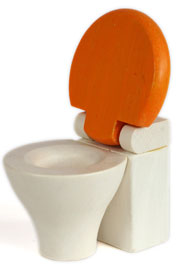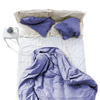Nocturnal enuresis: Stephen recalls his bed wetting days
Bed wetting, or nocturnal enuresis, is a very common disease amongst children, with almost 20% of 5–12 year olds experiencing symptoms. But it is often more than just a wet bed these kids have to deal with. Bullying, impaired social life and low self-esteem are all extra stresses that may stem from wetting the bed.
But it’s not all bad. Bed wetting is very treatable and there is help at hand.
We spoke to Stephen about his experience growing up with bed wetting and how he eventually managed to overcome it.
Turn on the water works
For Stephen it is impossible to remember a time before bed wetting.
“It started when I was a very small child and continued until I was in grade 7, it was a considerable portion of my childhood.
“I never suffered incontinence during the day, only at night. I just didn’t have the ability to recognise the need to get up and go to the bathroom which meant I wet the bed. I barely had a dry night my entire childhood.”
Stephen says that while his parents were very supportive and never angry at him for wetting the bed, his condition did create some strain.
“Wetting the bed every night obviously put a lot of extra work load on my parents. Everyday day I would have to have freshly washed sheets and pyjamas.
“I also needed a special protective sheet fitted to stop the mattress being affected.”
Those extra stresses extended beyond the family home and into Stephen’s social life.
“I never told my friends about my bed wetting, I managed to keep it pretty well in the family.
“I did go to some sleepovers but it was always very stressful, making sure I stayed awake throughout the course of the night so I wouldn’t wet the bed. I never wanted to wet the bed at someone else’s house because it might seem unusual to them that I would still be wetting the bed.”
Having an understanding and loving family at home is the ideal situation for anyone who is suffering with bed wetting and perhaps this is why Stephen is able maintain such a healthy and well-adjusted perspective on his childhood.
“Like any issues that people may have, you learn to accommodate and deal with the stresses when they arise.
“Looking back it wasn’t something that was overly traumatic for me,” he says.
“It was just something that was a part of my childhood and now I’ve grown up without it having any effect on me.”
 | For more information about how bed wetting can impact on the psychological wellbeing of an individual, and how these impacts can be minimised, see Impact of Bed Wetting. |
This leak will take more than a new seal
 After suffering through bed wetting for a few years Stephen and his parents realised it was time to seek some help with overcoming it.
After suffering through bed wetting for a few years Stephen and his parents realised it was time to seek some help with overcoming it.
“It was when I was in grade 6 that we decided to do something about it,” Stephen says.
“We went to a local GP to get some advice and because bed wetting is not something GPs get asked about a lot we were referred to a doctor who specialised in enuresis.”
For Stephen, meeting with the enuresis specialist was extremely helpful and helped to put his mind at ease.
“When we met with the doctor he normalised the idea that bed wetting is something that is quite common and that people of all ages can suffer from it.
“He gave us the example of a family where everybody wet the bed: Mum, dad and kids. They thought that was normal because they didn’t know any other way.”
Once the Doctor had reassured Stephen that there was nothing ‘wrong’ with him he recommended some treatment that eventually helped stop the wet nights.
“The Doctor recommended that I use a special mat on my bed that acts as an alarm,” says Stephen.
“Whenever the mat gets wet it completes a circuit and triggers an alarm. This trains you to wake up straight away whenever you’re wetting yourself so you can try and go to the toilet.”
Along with the alarm mat on his bed Stephen also had a reward system in place to provide incentive to wake up during the night.
With the combination of Doctors advice, the wetting alarm and the rewards system Stephen learnt to manage his night time bed wetting and eventually stop it all together.
While Stephen was lucky that the treatment he tried first worked, it is by no means a “one size fits all” scenario. What works for one person may not work for the next. Fortunately, if first line alarm therapy doesn’t work there are other treatment options available, including medicines such as desmopressin. It is a good idea to speak to a health professional to work out what best suits your particular circumstances.
Dry nights make happy days
“I don’t remember exactly when I stopped wetting the bed, it wasn’t straight away, but over time the treatments worked and I’d stopped completely before I started high school.” he says.
Stephen is the first to admit that while his bed wetting was an added stress on him and his family throughout his childhood, there are likely others that experience far worse circumstances.
“My advice to parents who are going through a similar experience is to remember that bed wetting is a medical condition and it can be treated,” he says.
“It is important not to get angry or blame them, remember that no one wets the bed on purpose.”
More information
 | For more information on the causes of bed wetting (nocturnal enuresis), statistics on how common it is and handy advice on how to overcome this problem, see Bed Wetting (Nocturnal Enuresis). |
Have a health experience you want to share? Contact us
Dates
Tags
Created by:

 Login
Login














